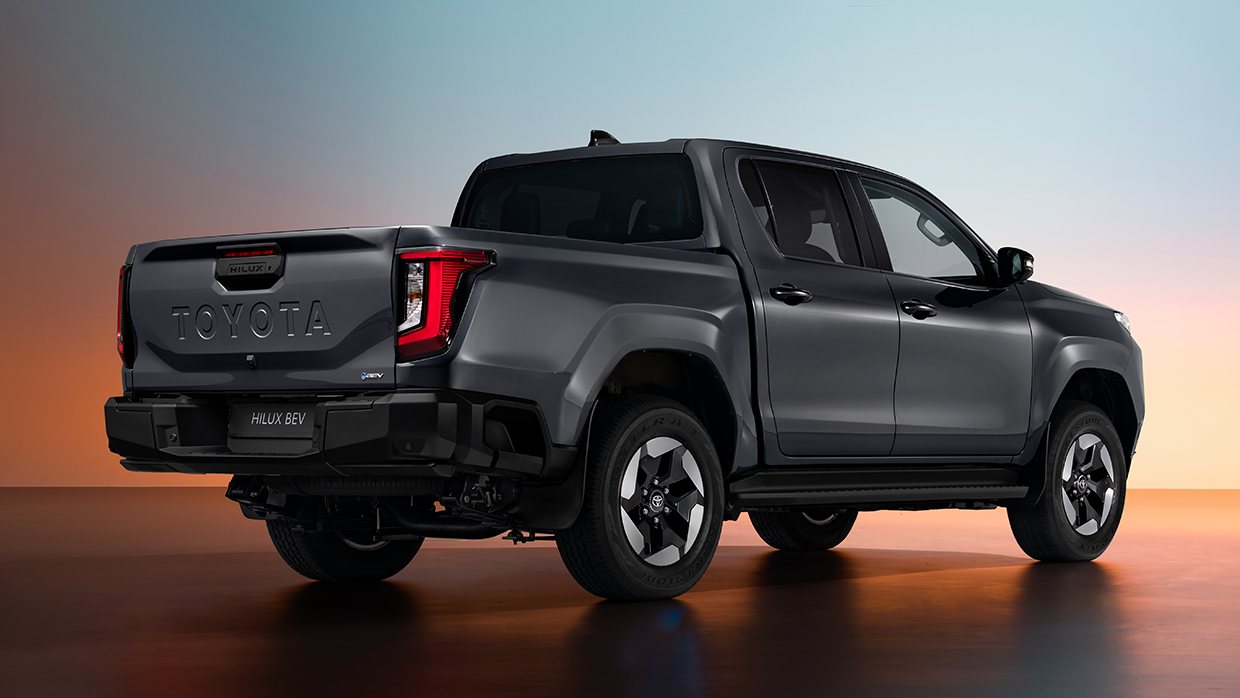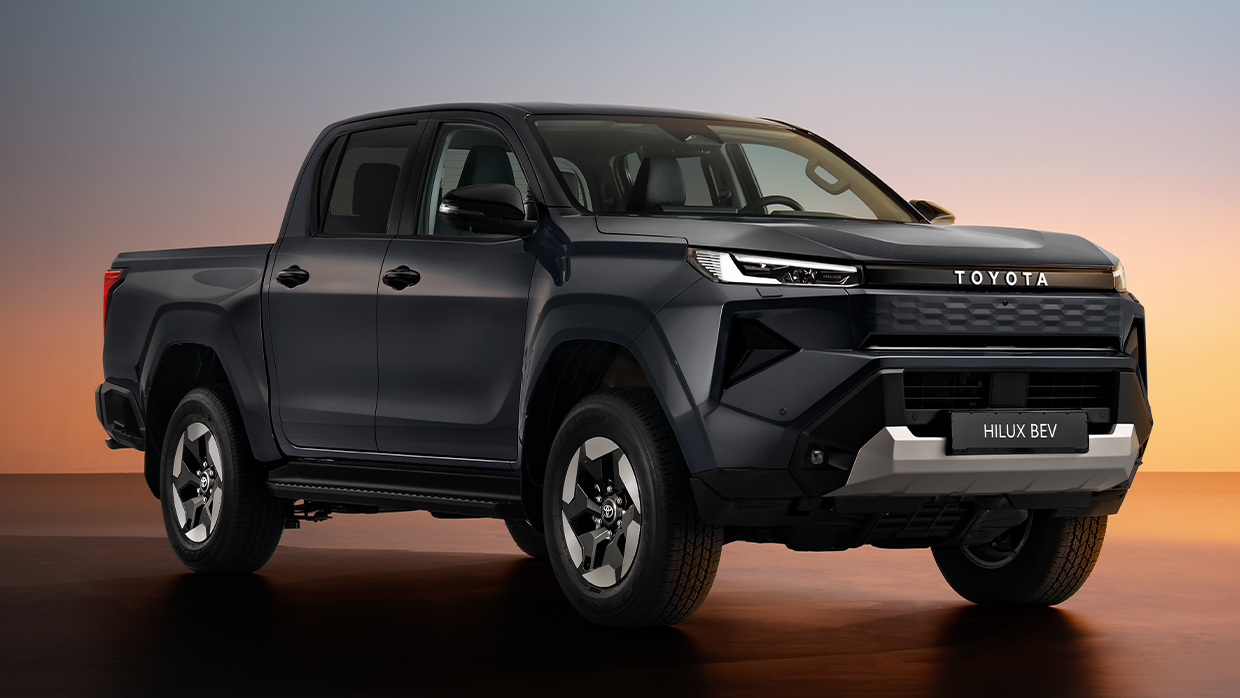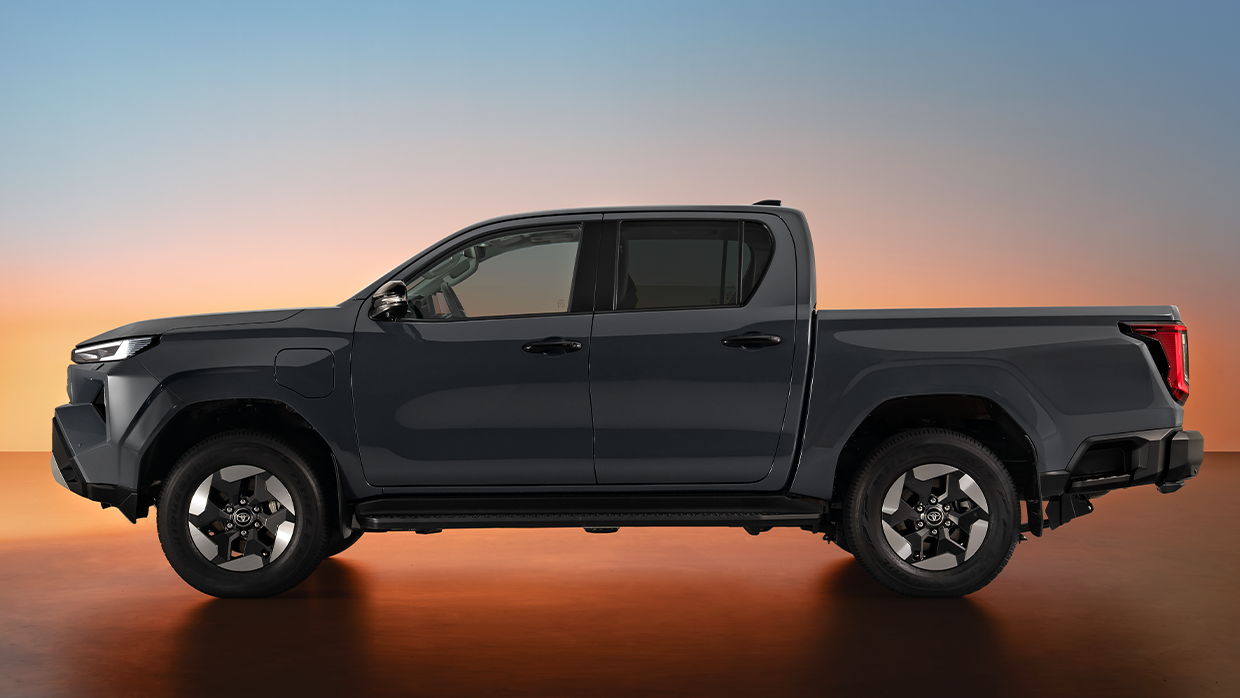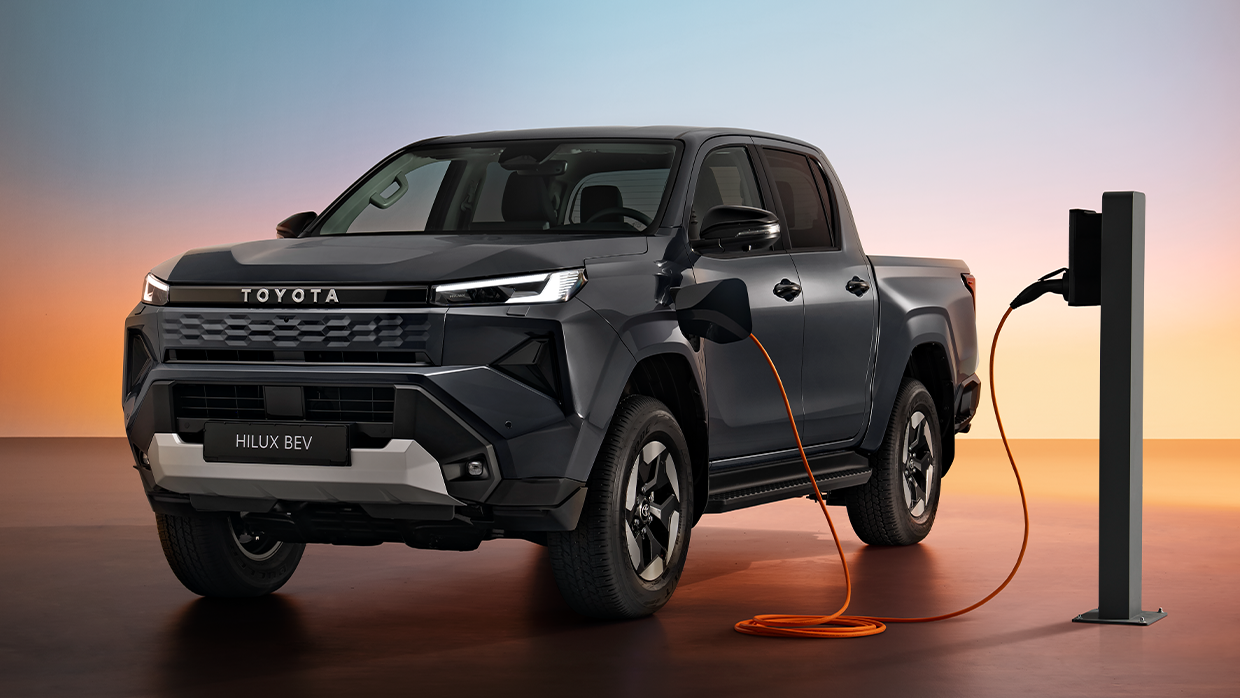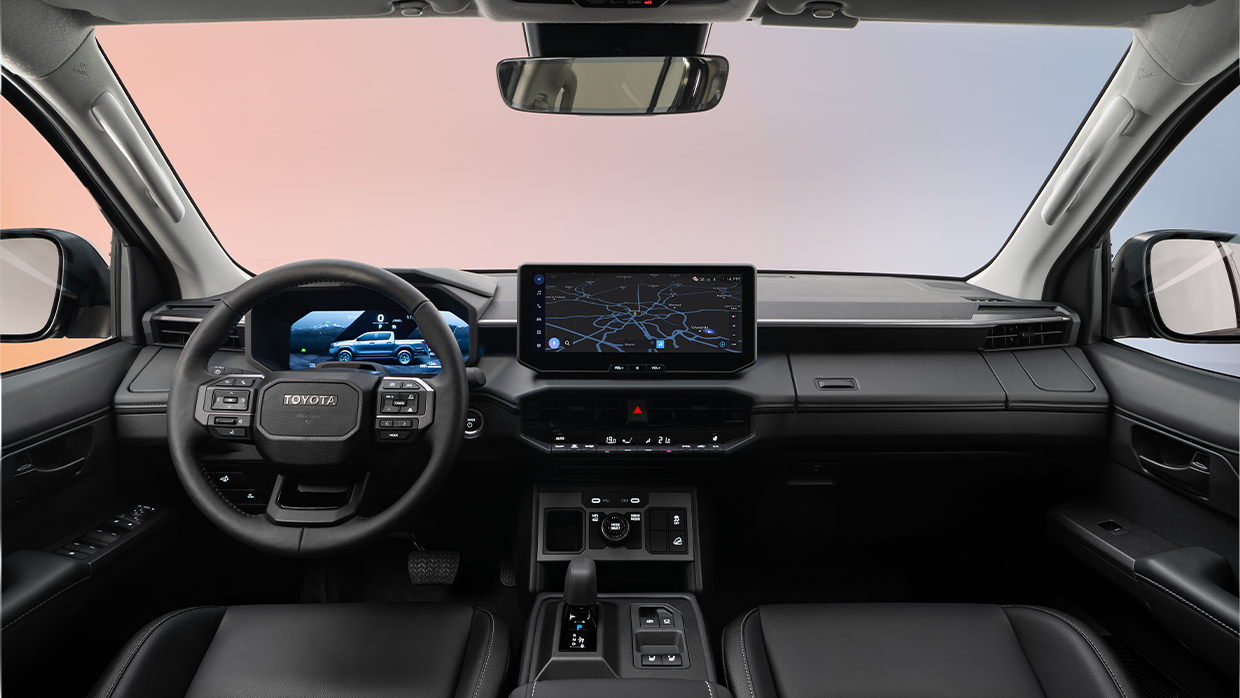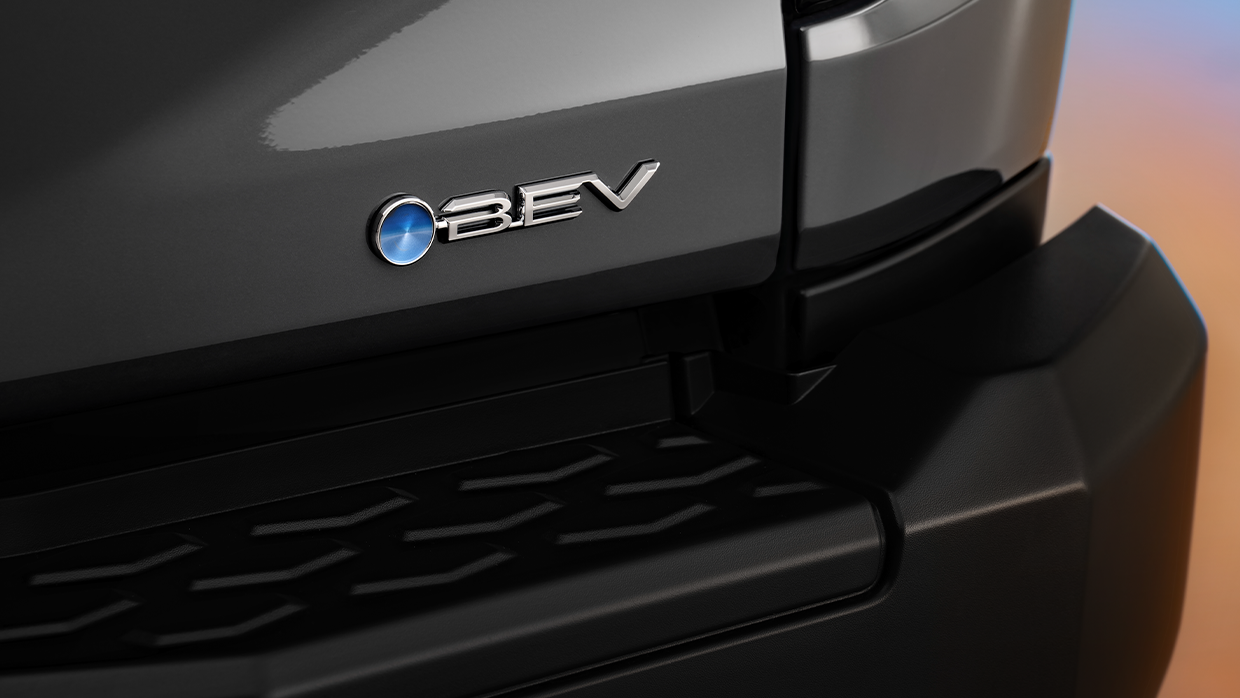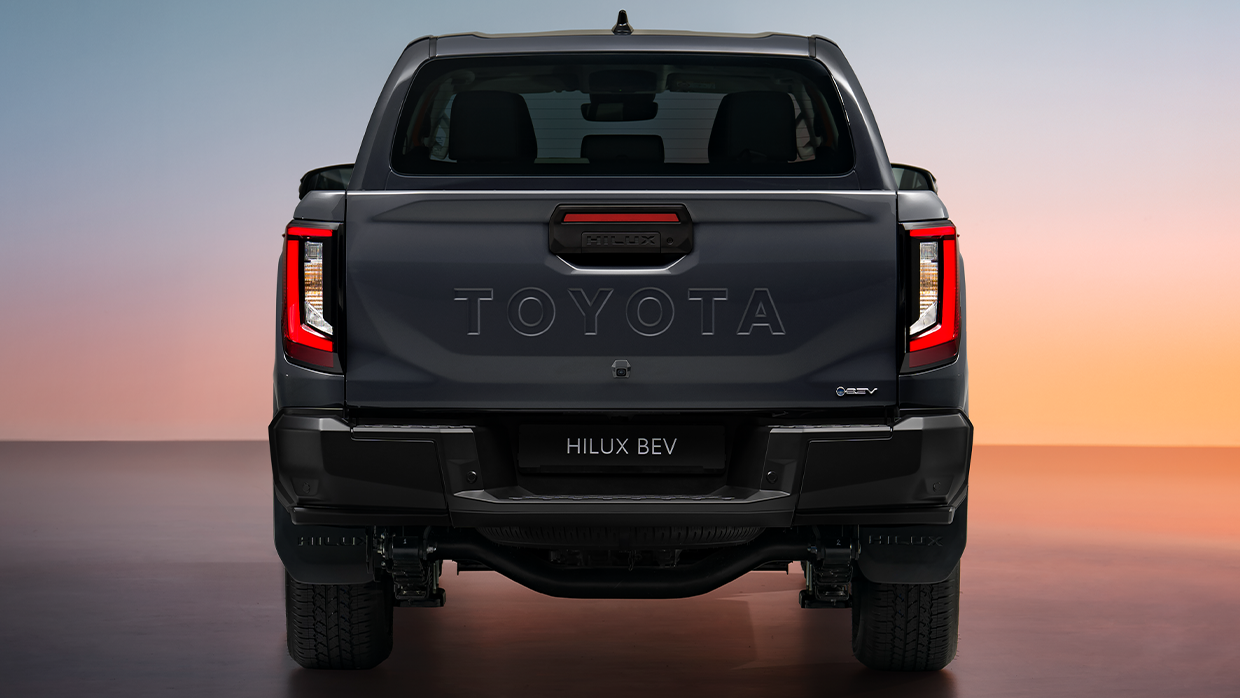-
Car Reviews
- All reviews
- Midsize SUVs
- Small cars
- Utes
- Small SUVs
- Large SUVs
- Large cars
- Sports SUVs
- Sports cars
- Vans
Latest reviews
- Car News
-
Car Comparisons
Latest comparisons
- Chasing Deals
Turbo-diesel and forthcoming hydrogen Hilux versions will be heavy-duty options, as specifications for the electric Hilux confirm a clear bias towards urban use
Some specifications of the fully electric version of the new Toyota Hilux have been confirmed, with the BEV ute sacrificing long range in favour of maintaining payload capacity that is reasonably close to the diesel version.
Toyota Motor Company Australia (TMCA) has repeatedly stressed that the 2026 Hilux BEV would be focussed on fleets (such as local councils) and town-based tradies that primarily drive in urban areas — and the brand was not kidding.
The Japanese brand’s European arm, Toyota Motor Europe (TME), has revealed key specifications that confirm just how urban-focused the dual-motor 4WD Hilux BEV really is.
A lithium-ion battery protected from water ingress but with just 59.2kWh of capacity provides a driving range of just 240km (WLTP) for the European market based on TME-estimated consumption of 24.6kWh/100km.
That driving range is less than a quarter of the claimed range of a 48-volt diesel Hilux SR5, which promises to wring 1111 kilometres out of its 80-litre fuel tank.
The Hilux BEV’s 240km range is shorter than the 330km (WLTP) claimed by the LDV eT60, until now the only other electric ute sold as a new vehicle in Australia.
While the electric Hilux’s range is very short, Toyota claims that it has “targeted best-in-class charging capabilities that will minimize vehicle down-time.”
Toyota has decided to keep the Hilux battery small (and therefore light) to maintain reasonable payload capacity, with TME indicating a “tentative, pre-homologation” payload figure of 715kg.
The same pre-homologation indication from TME suggests the Hilux BEV’s braked towing capacity will be 1600kg.
These specifications closely align to indications given by TMCA vice president of sales and marketing Sean Hanley in recent months.
“In the first quarter of next year, we will be launching a new Hilux BEV to meet the needs of largely fleet buyers that require the payload and passenger capacity that Hilux offers, and are able to recharge easily and economically,” he told Chasing Cars last month.
“We have seen a growing demand for BEVs in the ute space, particularly among fleet buyers,” said Hanley.
For comparison’s sake, the outgoing Hilux Rogue diesel has a similar payload of 764kg but a towing capacity of 3500kg.
Toyota will reveal a complete range of diesel-powered models with typically heavy-duty specifications in the coming hours.
Chasing Cars understands that the Australian homologation process for the Hilux BEV may result in minor amendments to the figures for the local market.
However, no substantial differences or changes to the above Hilux BEV specifications are likely for Australia.
Dual electric motors are set to provide a theoretical 473Nm of torque (205Nm from the front motor, and 268Nm from the rear motor), though power output has not yet been disclosed.
TME says that the Multi-Terrain Select software fitted to the Hilux BEV will be able to offer brake and torque control “equivalent to driving in L4 [low range] in a conventionally powered vehicle.”
While Toyota may choose to upgrade Hilux BEV specifications in time, particularly as increased battery energy density allows range to be extended without increasing battery weight (and reducing payload), another solution is in the wings.
TMCA announced earlier this week that it will import a fuel cell electric (FCEV) hyrdrogen-fuelled version of the Hilux from 2028.
The Hilux FCEV is likely to promise circa-500km range and greater towing capacity than the BEV version of the ute, though hydrogen refuelling infrastructure is few and far between.
To combat the latter issue, Toyota Australia has promised to invest in mobile hydrogen refuelling infrastructure for fleet customers.
Latest news
About Chasing cars
Chasing Cars reviews are 100% independent.
Because we are powered by Budget Direct Insurance, we don’t receive advertising or sales revenue from car manufacturers.
We’re truly independent – giving you Australia’s best car reviews.
